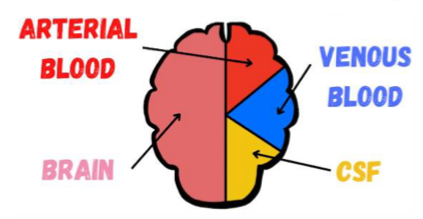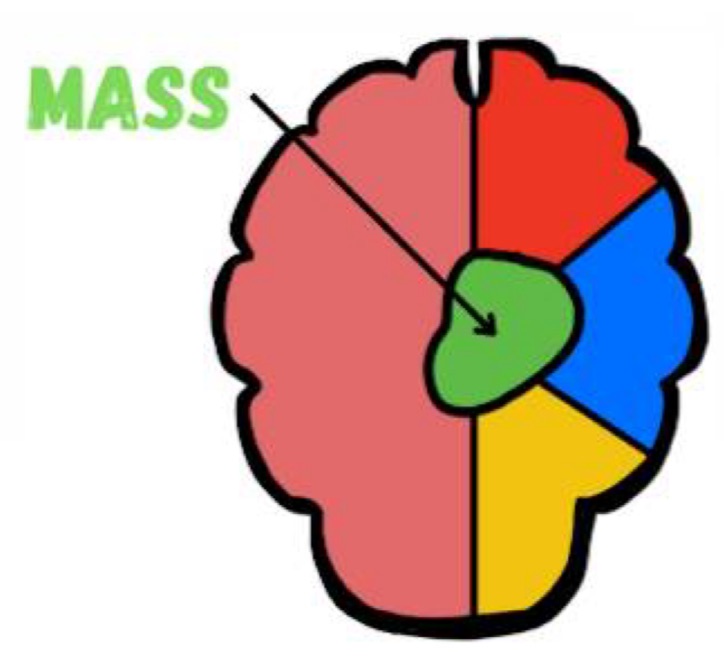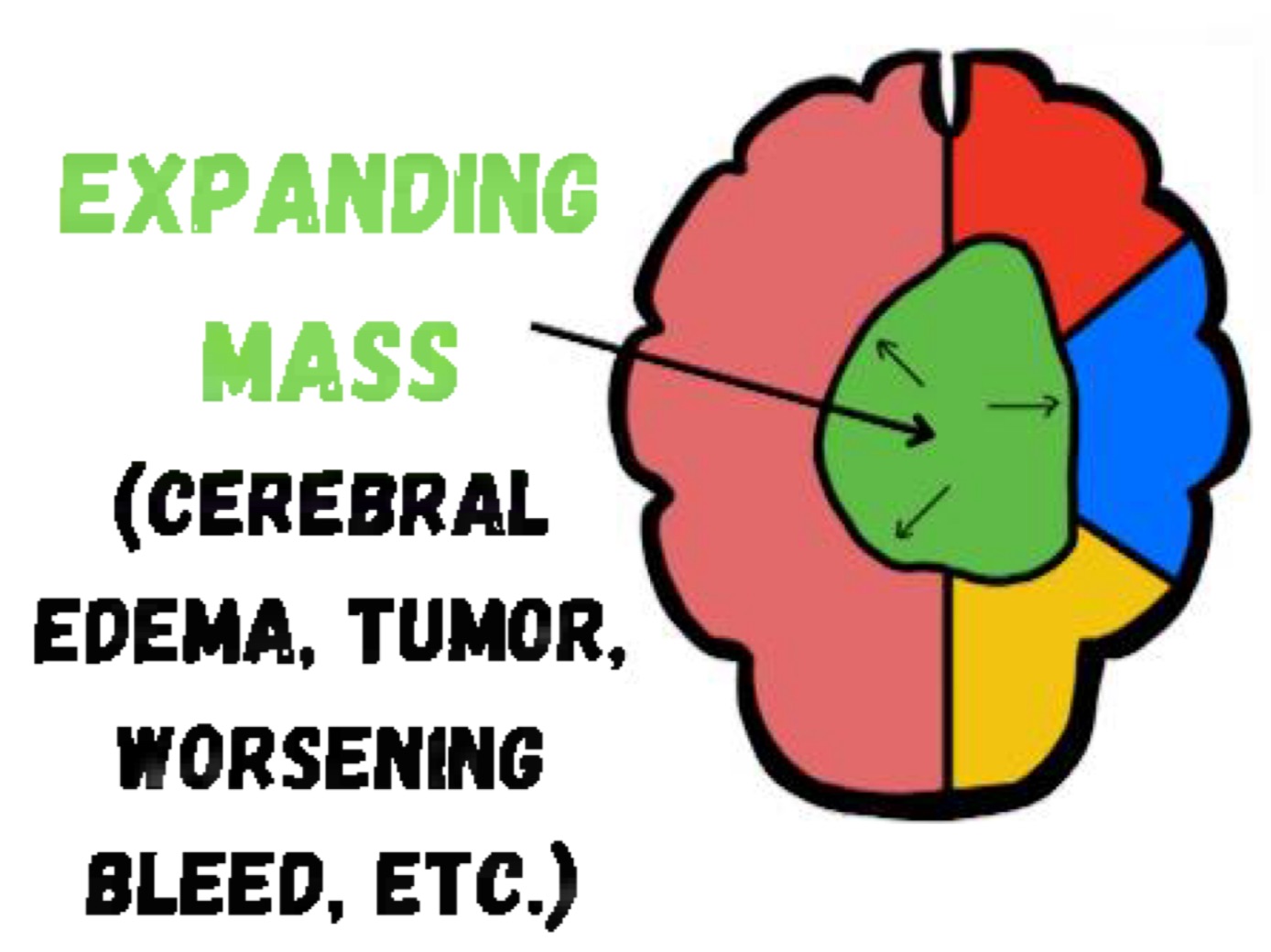neurological
1/14
There's no tags or description
Looks like no tags are added yet.
Name | Mastery | Learn | Test | Matching | Spaced | Call with Kai |
|---|
No analytics yet
Send a link to your students to track their progress
15 Terms
glasgow coma score - 3 components
eye opening (4)
verbal response (5)
motor response (6)
3 (teddy bear) -15 (normal)
glasgow coma score - eye opening
1 - none
2 - to pain
3 - to speech
4 - spontaneous
glasgow coma score - verbal response
1 - none
2 - incomprehensible
3 - inappropriate words
4 - confused
5 - oriented
glasgow coma score - motor response
1 - none
2 - extension (decerebrate)
3 - flexion (decorticate)
4 - withdraws
5 - localizes
6 - obeys commands
GCS interpretations
“LESS THAN 8” - INTUBATE!
intubated patients - scores range from 2T-10T (verbal response is NOT accounted for)
indicates severe brain injury or unresponsiveness with immediate concern for airway protection
monroe-kellie doctrine
principle of intracranial hemodynamics that the combined volume of brain, blood, and CST is constant
normal state (ICP normal)
brain is a “box” of incompressible space
volume inside the cranium (“box”) is fixed

compensated (ICP normal)
intracranial components can initially compensate for extra volume while the ICP remains normal
CSF and venous blood can be compressed, providing a degree of pressure buffering

decompensated state (ICP high)
limit of displacement of CSF & blood has been reached
volume of mass reaches critical threshold (rapid increase in ICP) → can lead to reduction or cessation of cerebral blood flow & herniation risk

volume-pressure curve
when the ICP increases beyond pressure limit, herniation can occur

medical therapies for brain injury
primary goal: prevent secondary damage to an already injured brain
hypertonic saline
reverse anticoagulation
mannitol (osmitrol)
IV fluids/blood products
TBI - hypertonic saline
creates an osmotic shift of fluid, used to decrease ICP
concentrations of 3% to 23.4% commonly used
23.4% is for physician administration
preferred agent for hypotensive patients with elevated ICPS (not a diuretic)
close monitoring of serum osmolarity + sodium necessary
mannitol (osmitrol)
a potent osmotic diuretic, used to decrease ICP
fluid shifts from brain tissue into intravascular space, facilitating reduction in ICP
use with caution in hypotensive patients
results in free water clearance & increased serum osmolality
IV fluids/blood products
hypovolemia in TBI patients is harmful!
avoid hypotension (think: MAP - ICP = CPP)
avoid hypotonic solutions → worsens cerebral edema
carefully monitor serum sodium levels
reverse anticoagulation - medications
antiplatelets (e.g. aspirin) → platelets
[INR] coumadin (warfarin) → FFP, vit K
[PTT] heparin, lovenox → protamine sulfate